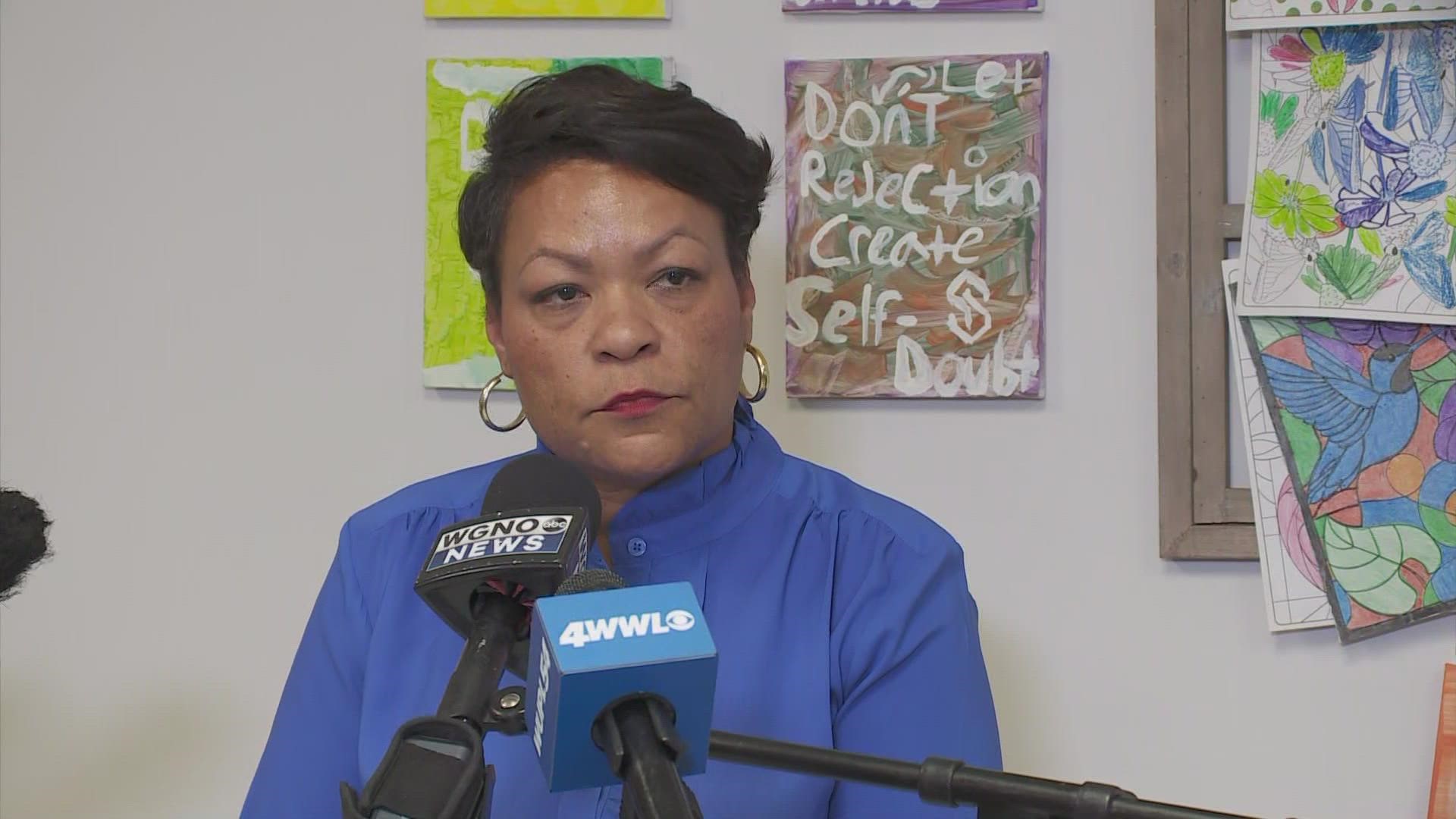NEW ORLEANS — New Orleans Mayor LaToya Cantrell firmly defended her decision to show up in court in support of a juvenile carjacker who used a fake gun to traumatize and steal cars from victims, but who she said has since turned his life in a positive direction with the help of a program she oversees.
The mayor had come under fire from even some allies and city council members who questioned the public choice of being in court showing support for the juvenile offender, while across room the victims shed tears over their experiences.
Cantrell made no statements at the press briefing but only fielded questions from the media. It was her first meeting public comments on the subject since the incident last week where a couple of the victims said they were surprised and upset as the mayor comforted the family of the now 14-year-old, who received probation despite being convicted on three first-degree robbery charges.
“I do not regret supporting a young person who has demonstrated that they are willing to make better decisions,” she said.
She also said that she did show some support for the victims. "I did not want to disrupt the proceedings of the courtroom. I had a schedule to attend to. I did say, 'God Bless You.' That means something to me... I rubbed their shoulder. That's my way."
WWL-TV Political Analyst and Gambit Columnist Clancy DuBos said that even if the mayor says her intentions were good, the perception of those affected was different..
"She said she showed love to the victims. That's not how the victims see it," he said. "
DuBos also said that even if the juvenile's family had requested her appearance in court, images matter.
"When the mayor shows up somewhere, it sends a message. Mayors, governors, presidents, council members. All elected officials at a certain level have to be very cognizant of what messages they are sending, depending on what they do, what they say and where they go."
Cantrell said the young man had participated in her Pathways program that she says tries to steer young people in a better direction. She said that 88 percent of the participants in the program stay on the right track. It is not certain what criteria is used to determine if they stay on the right track or how big of a sample and time frame it involves.
Cantrell said because she is over the Juvenile Justice Center she asks for reports on every person in the system, their parents, contact numbers and other information. She said she builds relationships and gets a list of each time a person moves through the justice system, even their court appearances. She said she doesn’t get a list of victims from the district attorney’s office but is open to having that happen so she can show them support as well.
“I’m open to it,” she said. “(In order) to provide a level of support to the victims, because they matter.”
Cantrell also said that her support of the juvenile program actually supports victims as well because the young people who go through the system and come out of it headed on the right track aren’t out there committing crimes.
“You can’t tell me that doesn’t have a positive impact on the streets of New Orleans…” she said. “This is a success story. In my opinion, because we were able to not only arrest, but turn that kid around and put that kid on the right path and I know for a fact that it’s had a positive effect on the community and it baffles me how you don’t see that.”

